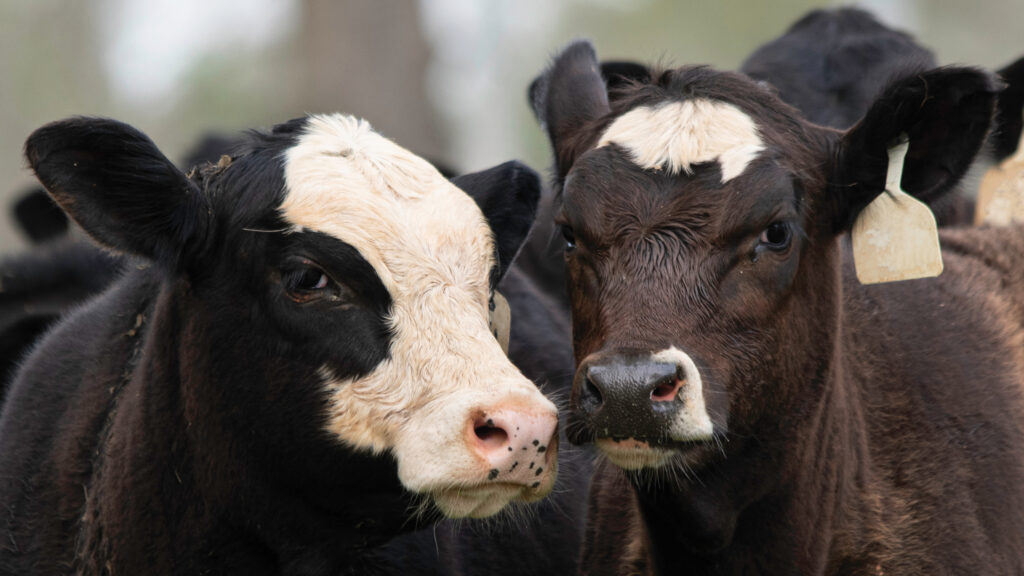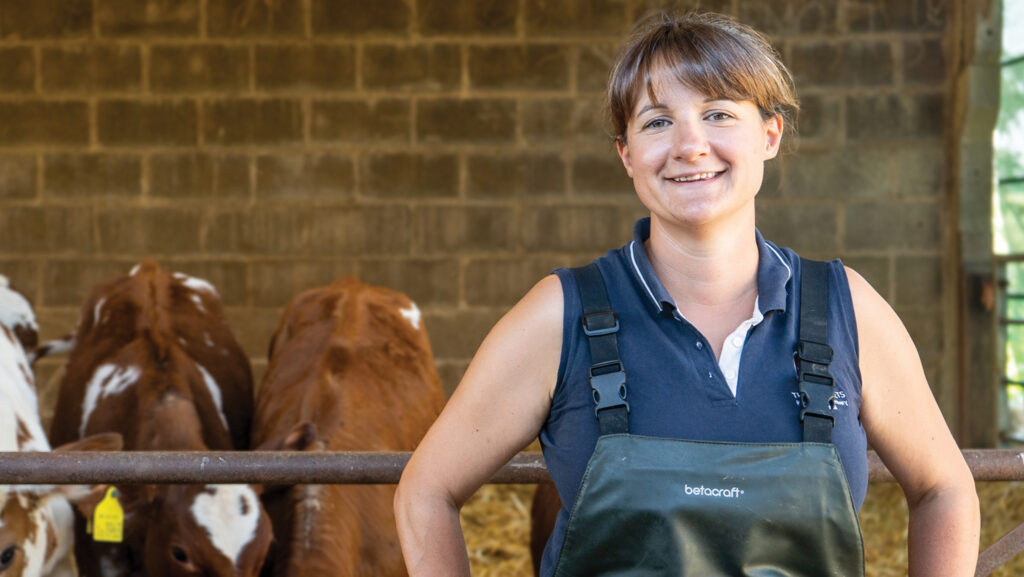How a farm vet team cut antibiotics use in calf castrations
 © Adobe Stock
© Adobe Stock Antibiotics use in surgical calf castration by a south of England vet practice fell by nearly 60% in one year following a clinical audit.
Tonia Simms, clinical director at Hampden Farm Vets, part of VetPartners, says anecdotal evidence would suggest some vets use antibiotics routinely during this on-farm procedure as a failsafe because it cannot be carried out in sterile conditions.
Keen to find out how her practice was performing, Tonia carried out an audit to see how often antibiotics and non-steroidal anti-inflammatories (NSAIDs) were being used during the standard “twist and pull” method of castration.
See also: How lung washing slashed antibiotics use in calf shed

Tonia Simms © VetPartners
“As an industry, we’re moving to using fewer antibiotics in food-producing animals, and this was an easy process to focus on,” she says.
“Calves should be healthy animals and there shouldn’t be a need for antibiotics [at castration], but a lot of vets are using them prophylactically, and a lot of farmers are expecting it.”
Results
In 2021, the practice – which has 10 farm vets – performed 719 surgical castrations on calves aged 3-12 months (see table).
NSAIDs were given in almost 99% of cases, and antibiotics were prescribed in less than 12% of cases.
Local anaesthetic, which is a legal requirement, was administered in 100% of cases.
Clinical notes indicated that antibiotics were used if the surgery was taking place in particularly dirty conditions, or if the calf had a retained testicle.
However, while Tonia and her team concluded they were “doing a pretty good job”, some vets were prescribing antibiotics above the average rate, while others never administered any.
The data gathered from the audit, and the discussions that followed, empowered the vets to justify their decisions about antibiotics use, saving them for “where they were really needed rather than to be on the safe side”, she says.
“If a farmer said, we always have antibiotics, we could say, actually, 88% of our castrates don’t get antibiotics,” she adds.
Antibiotics and non-steroidal anti-inflammatories use in calf castrations by Hampden Farm Vets 2021-22 |
||
|
|
2021 |
2022 |
|
Number of castrate visits |
98 |
81 |
|
Surgical castrations performed |
719 |
929 |
|
Visits with sufficient clinical notes to analyse (%) |
96.9 |
96.9 |
|
Castrations with administered antibiotics (%) |
11.5 |
4.6 |
|
Castrations without administered antibiotics (%) |
88.5 |
95.4 |
|
Of the castrations prescribed antibiotics, how many had clinical notes supporting the decision (%) |
47 |
97.7 |
|
Castrations with non-steroidal anti-inflammatories |
99.9 |
100 |
|
Source: Tonia Simms, Hampden Farm Vets |
||
Improvements
The audit was repeated in 2022. This time, it revealed that NSAIDs were used in 100% of the 929 surgical castrates performed, while antibiotics use was down from 12% to 5% of cases.
And there were no reports of antibiotics being prescribed subsequently, or of a vet returning to a farm to treat a castrated animal.
“The 2022 data showed that vets were happier to perform more complicated castrates without antibiotics, as long as there was communication with the client as to the risks of post-operative infection,” says Tonia.
“It’s not about banning antibiotics, but refining the use of them. I’m quite happy for my vets – and farmers – to have that discussion and to use them as appropriate.”
Antibiotics in other procedures
Tonia’s work on calf castrates earned her the Royal College of Veterinary Surgeons’ RCVS Knowledge Award Antimicrobial Stewardship Champion 2023. She now plans to look at other procedures at Hampden Vets.
“It would be a very brave vet who routinely withheld antibiotics for something like a caesarean section,” she says.
“But things like displaced abomasum operations, where everything is kept very clean, very tidy, I’d like to look at our antibiotics use, and identify whether the occasions when we administer them could be more specific rather than a ‘just in case something goes wrong’ [approach].”
